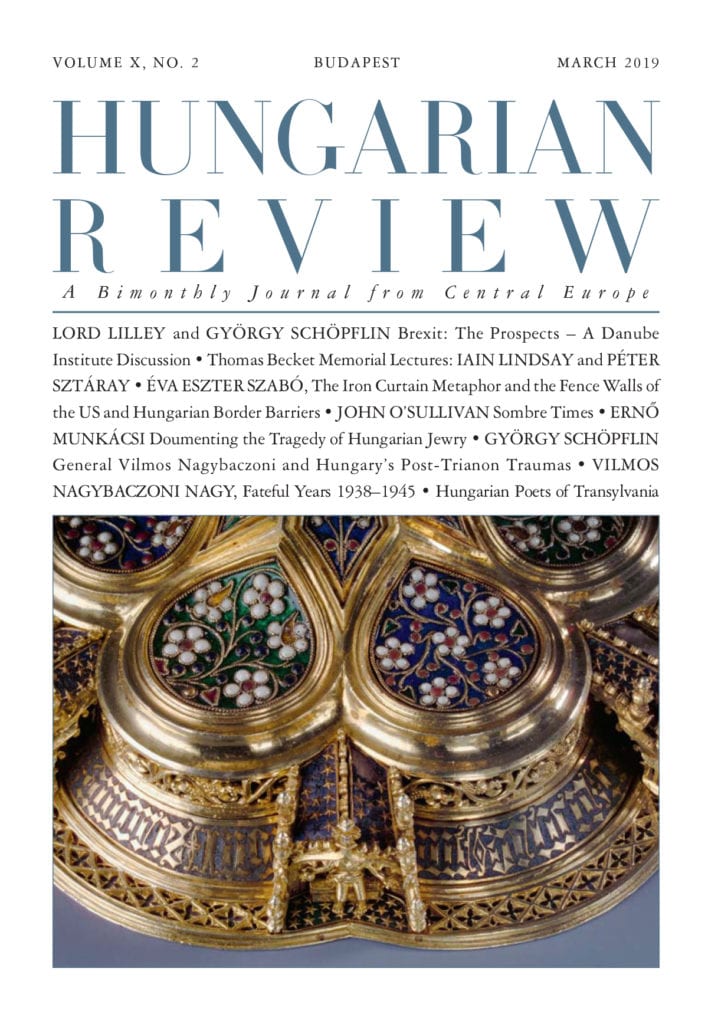CONSOLATIONS IN A SOMBRE TIME
It should be admitted from the start that this issue of Hungarian Review is a sombre one in which many of the articles are written in a minor key. To

It should be admitted from the start that this issue of Hungarian Review is a sombre one in which many of the articles are written in a minor key. To
“Becket’s martyrdom, in defence of religious freedom, had a profound impact on British attitudes to religious freedom over the centuries, notwithstanding the Reformation. Arguably, Britain has done more to influence
“Saint Thomas of Canterbury serves as a role model for us in more ways than one. For us, he is not just a saint, but a courageous man who stood
“Currently under European treaties we have the right to leave by giving notice within the two years we have left. We give up that right under this proposed deal. This
“In the last 30 years there has really been an extraordinary centralisation of administrative processes in the United Kingdom. Scotland is obviously separate politically rather than just administratively. Northern Ireland
“From the moment Hungarian Prime Minister Viktor Orbán announced the border fence onwards, US President Donald Trump and Orbán have often been compared with regards to their views on border
“Although the EU and several of its most powerful member states condemned Russia’s annexation of Crimea, dependence on Russian gas deterred European countries from taking any really meaningful action in
Dr Ernő Munkácsi, Secretary of the Hungarian Central Jewish Council, left for posterity his first-hand account of the German occupation of 1944, describing the Hungarian Jewish community’s struggle for survival,
1 History, as is so often repeated, is generally written by the victors. Sometimes, though, the victors are defeated and the suppressed voices of those the victors had intended to
On 17 March 1944, the Regent travelled to Klessheim at Hitler’s request. He was accompanied by Minister of Foreign Affairs Jenő Ghyczy, Minister of Defence Lajos Csatay, and Chief of
HUNGARIAN POETS OF TRANSYLVANIA A late 12th-century text known as the “Funeral Oration” (“Halotti beszéd”) is the first surviving complete work in (Old) Hungarian.1 Its opening is known to every
THE POOR RELATION FROM THE WOODS (A szegény erdei rokon, 1984) I 1. The poor relation from the woods stands at the door. 2. He has an archaic stare. 3.
My paternal grandmother served as assistant choir leader – a precentress, no less – in our village church. My father was the youngest of her eleven sons, and thus heir
First we heard what sounded like gunfire, then came a shrieking sound like a festive rocket being launched. Only then did we see rising in the sky above the vines
Ferenc Kazinczy, as an enthusiastic amateur and knowledgeable connoisseur, has long been synonymous with horticulture in Hungary, and in particular with the art of the English landscape garden. The profound
SALVATORE BABONES (New York, 1969) earned his PhD in sociology from The Johns Hopkins University (2003). An American citizen, he is now an associate professor of sociology at the University